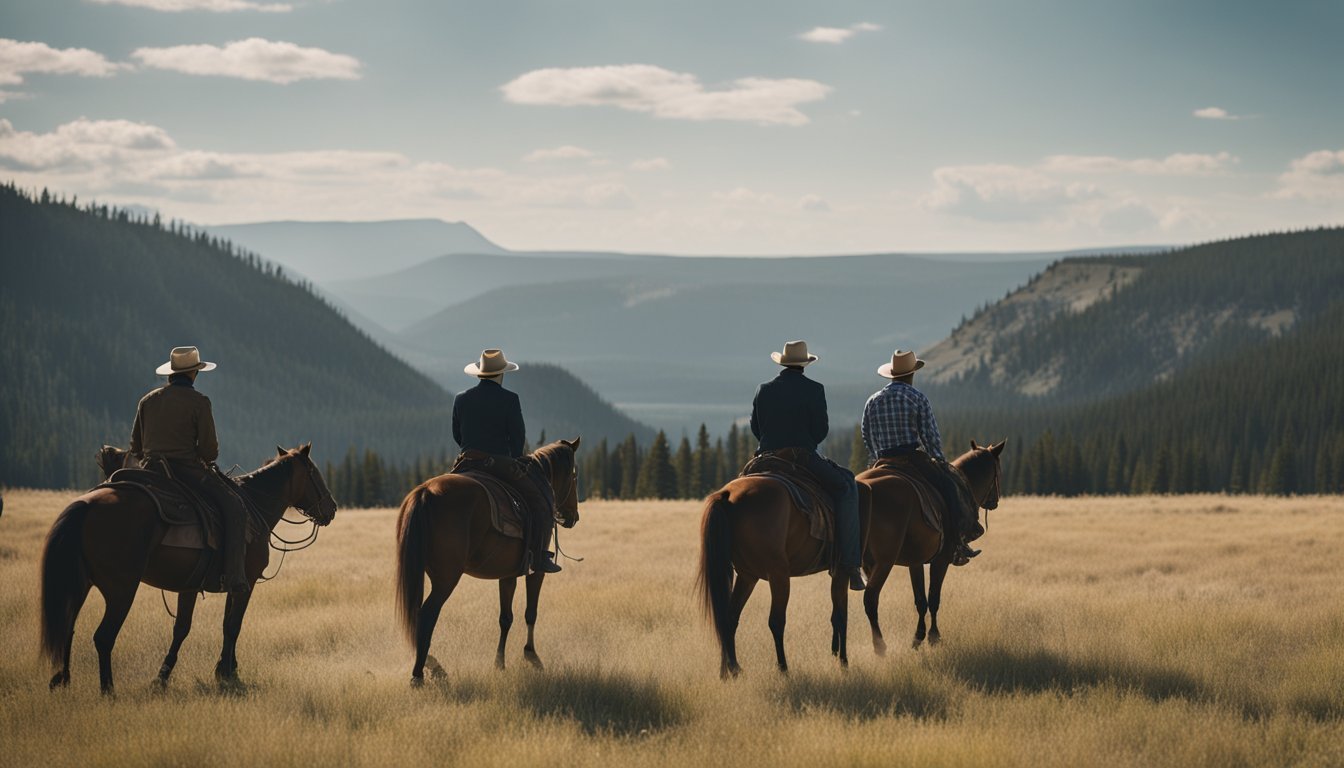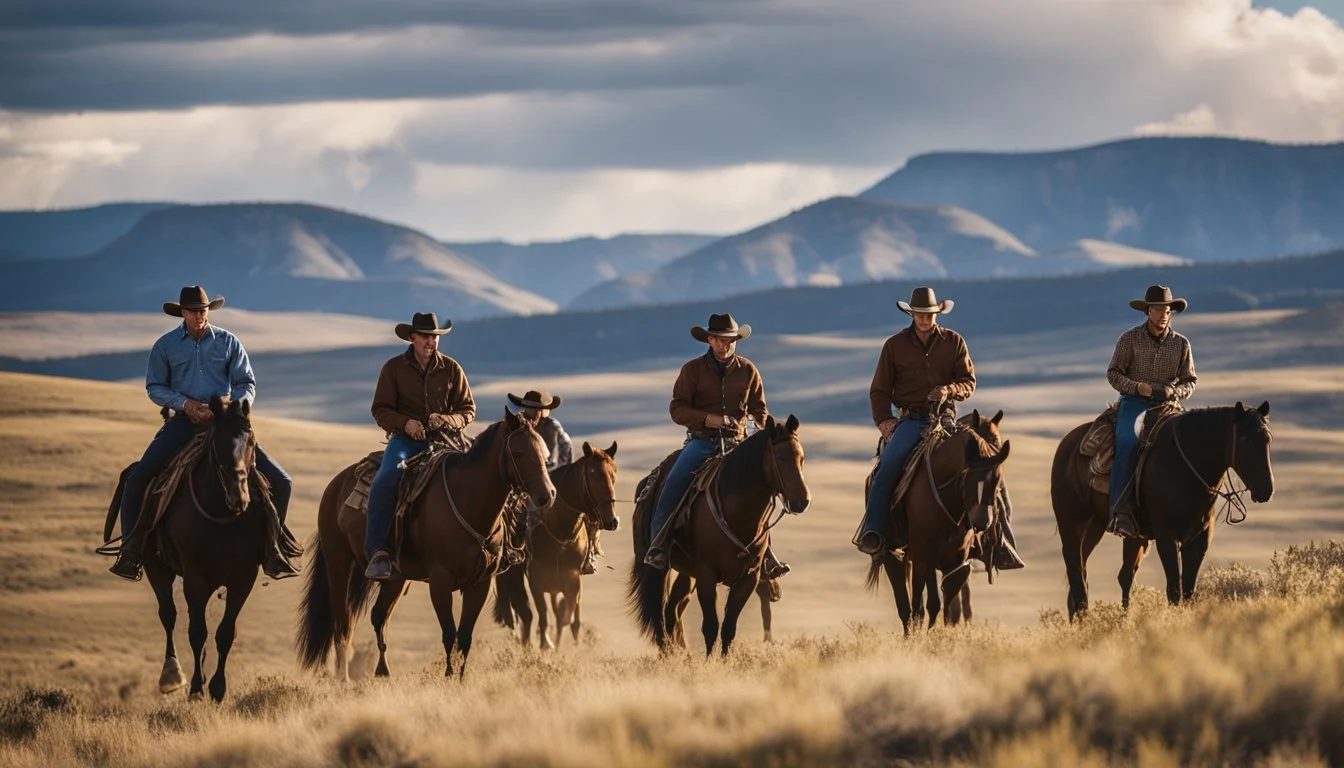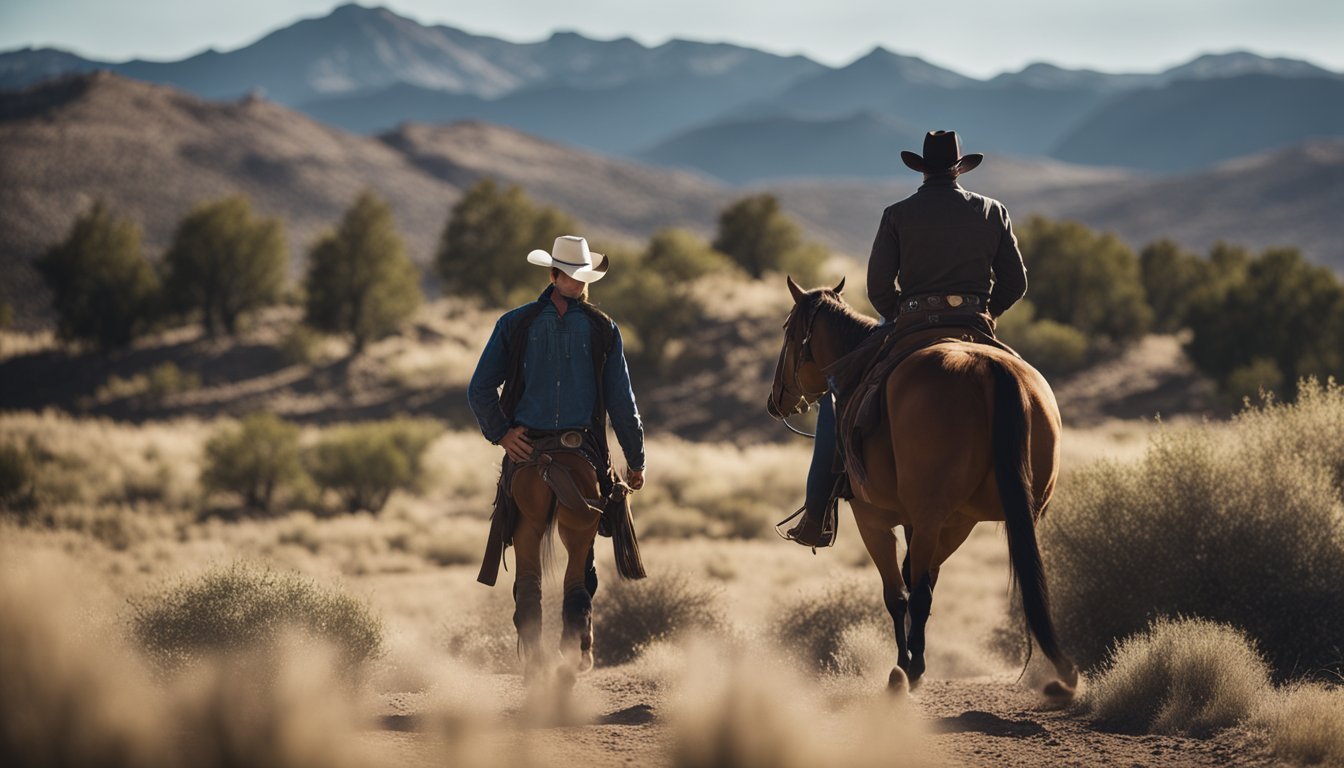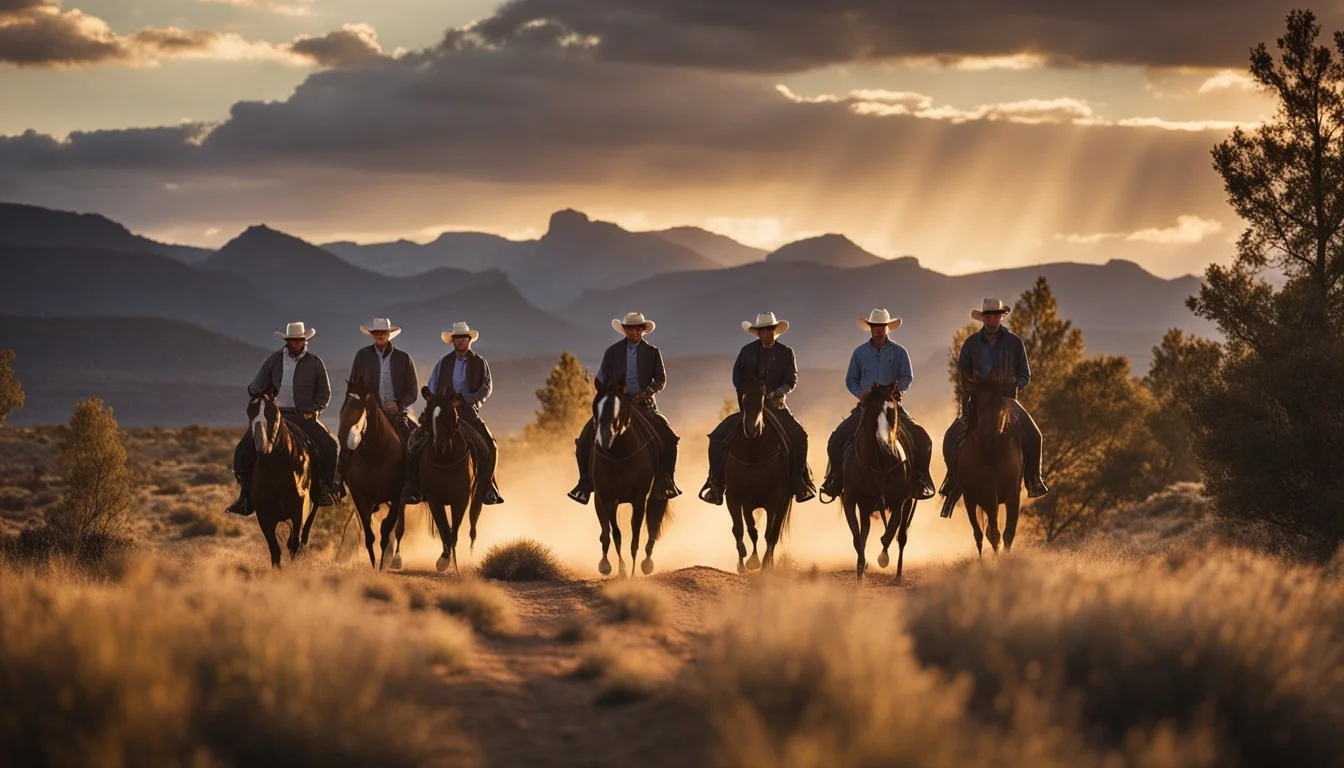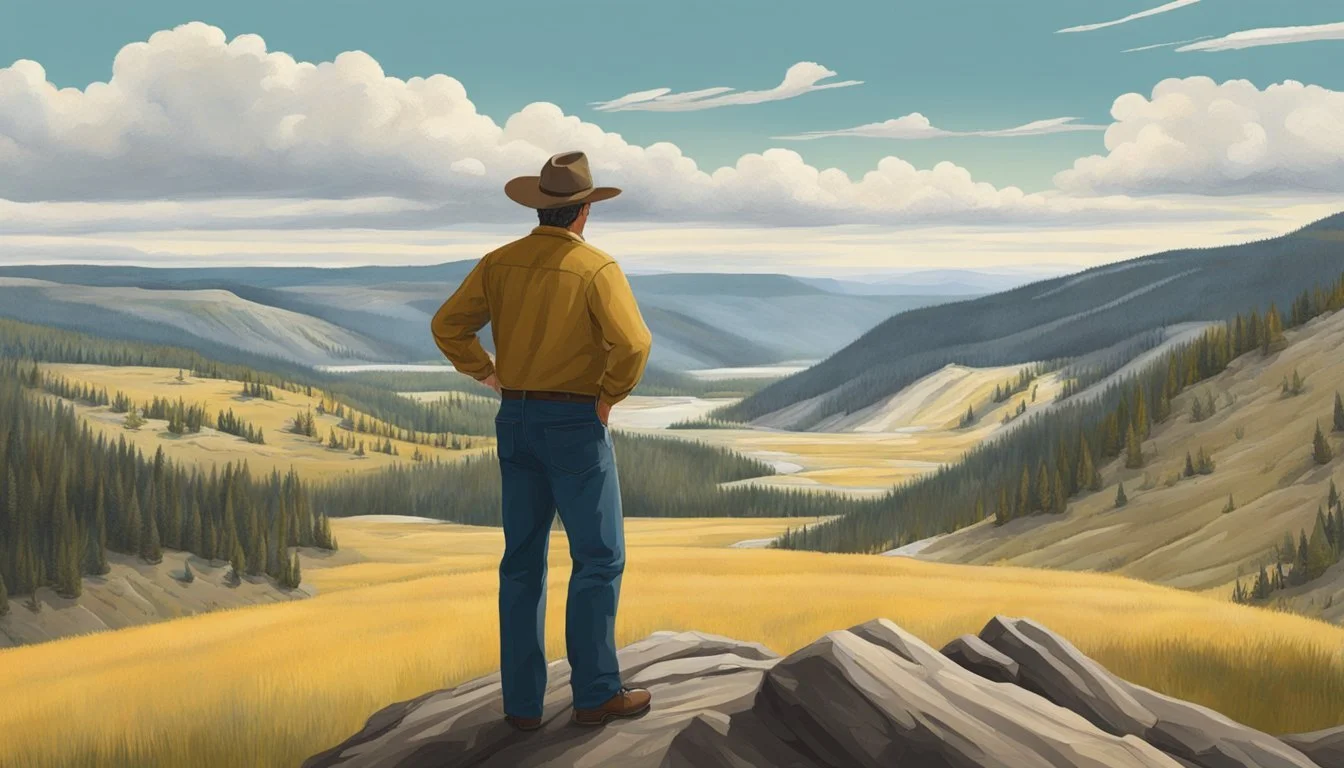John Dutton's Shocking Change of Heart Could Upend Yellowstone Forever
Yellowstone has captivated audiences as a neo-Western drama and cultural phenomenon, with John Dutton's fierce protection of his family's vast ranch at its core. Kevin Costner's portrayal of the Dutton patriarch has been central to the show's success. But what if John Dutton had a change of heart about land conservation?
A shift in John Dutton's stance on land conservation could dramatically alter the trajectory of Yellowstone and the fate of the Dutton ranch. Such a change might see John embracing sustainable practices or even considering returning portions of the land to Native American tribes. This would create new conflicts within the family and with external forces, potentially reshaping alliances and rivalries.
The impact of John Dutton's hypothetical change of heart would ripple through the series, affecting relationships, power dynamics, and the very landscape of Montana. It could lead to unexpected partnerships, innovative land management strategies, and a reevaluation of what it means to be a steward of the land in modern America.
John Dutton's Character Evolution
John Dutton's transformation regarding land conservation marks a significant shift in his character. This change impacts his relationships, values, and approach to managing the Yellowstone Ranch.
Motivations Behind the Change of Heart
John Dutton's shift towards land conservation stems from a complex mix of personal experiences and external pressures. Witnessing the effects of climate change and habitat loss on his property likely plays a role. Interactions with conservationists and scientists may have opened his eyes to new perspectives.
Family influences, particularly from Beth and Kayce, could contribute to his evolving viewpoint. Beth's business acumen and Kayce's connection to nature might shape John's new outlook.
Economic realities of ranching in the modern era may also factor into his decision. John realizes that embracing conservation could ensure the ranch's long-term viability.
Impact on Family Dynamics
John's new stance on conservation creates ripples within the Dutton family. Beth, known for her sharp business mind, may see opportunities in this shift. She could leverage her father's newfound interest to explore eco-friendly business ventures.
Kayce, with his deep connection to the land, might find common ground with his father. This shared perspective could strengthen their bond.
Jamie, often at odds with John, may struggle to adapt to this change. His political aspirations and legal expertise could be challenged by John's new conservation-focused agenda.
Family loyalty is tested as each member grapples with the implications of John's transformation. The shift creates new alliances and conflicts within the Dutton clan.
Interaction with Ecosystem and Wildlife
John's evolving perspective leads to tangible changes in ranch management. He implements sustainable grazing practices to protect native grasslands. Water conservation measures are put in place to preserve local ecosystems.
Wildlife corridors are established, allowing animals to move freely across the property. This decision may create tension with neighboring ranchers but enhances biodiversity.
John partners with wildlife biologists to monitor and protect endangered species on Yellowstone Ranch. This collaboration opens doors to research opportunities and potential funding sources.
The ranch becomes a model for conservation-minded ranching in the region. John's leadership in this area influences local policies and inspires other landowners to adopt similar practices.
Repercussions on Dutton Ranch Operations
John Dutton's change of heart about land conservation would significantly alter the Dutton Ranch's operations and relationships. This shift would impact ranching practices, community dynamics, and the ranch's overall sustainability.
Alteration in Ranching Practices
The Dutton Ranch would likely adopt more sustainable grazing methods to align with conservation goals. This could involve rotating cattle between pastures more frequently to prevent overgrazing and soil degradation.
The ranch might reduce its cattle herd size to decrease environmental impact. This decision could lead to a focus on quality over quantity in beef production.
Implementation of water conservation techniques, such as improved irrigation systems and drought-resistant grass varieties, would become a priority. These changes would help preserve Montana's natural resources while maintaining ranch productivity.
Relationship with Neighboring Community
John Dutton's new stance on conservation could improve relations with environmental groups and some local residents. This shift might reduce land disputes and legal battles that have historically plagued the ranch.
Partnerships with indigenous communities could emerge, focusing on shared land stewardship and cultural preservation. The Dutton Ranch might collaborate with Native American tribes on conservation projects and traditional land management practices.
Some ranchers might view Dutton's change as a betrayal of traditional values. This could create tension within the ranching community and potentially isolate the Duttons from longstanding allies.
Economic and Environmental Sustainability
The ranch could diversify its income streams by introducing eco-tourism activities. Guided nature tours, wildlife photography workshops, and educational programs about sustainable ranching could attract visitors and generate additional revenue.
Participation in carbon credit programs might offset potential losses from reduced cattle production. The ranch could earn income by sequestering carbon through improved grazing practices and reforestation efforts.
Government grants and private funding for conservation initiatives could become available to the Dutton Ranch. These financial resources would support the implementation of new environmentally friendly technologies and practices.
The long-term environmental benefits of conservation efforts could enhance the ranch's resilience to climate change and market fluctuations. This approach might secure the Dutton legacy for future generations while preserving Montana's natural beauty.
Consequences for External Relationships
John Dutton's change of heart about land conservation would dramatically alter his interactions with key players in Montana. This shift would redefine alliances, exacerbate certain conflicts, and reshape political dynamics in the region.
Conflicts with Market Equities
Market Equities, the corporate shark eyeing Dutton land, would face unexpected obstacles. Their plans for commercial development would clash with John's new conservation stance. Land disputes would intensify as Market Equities struggles to acquire property now protected by conservation easements.
The company might escalate legal battles, challenging the validity of Dutton's conservation agreements. They could attempt to sway public opinion by framing John's decision as detrimental to economic growth. This conflict would likely become a central plot point, mirroring real-world tensions between developers and conservationists.
Alliances with Conservation Groups
John's pivot would open doors to unlikely partnerships. Conservation organizations, once wary of the Duttons, might now view John as a powerful ally. These groups could offer legal support, expertise in land management, and public relations assistance.
Thomas Rainwater, representing tribal interests, might find common ground with John on preserving Montana's natural beauty. This alliance could evolve into a formidable force against corporate encroachment. The show could explore the complexities of bridging cultural divides for a shared goal.
Joint initiatives between the Dutton Ranch and conservation groups could become a new storyline, showcasing innovative approaches to sustainable ranching.
Influence on Political Spheres
John Dutton's new stance would send shockwaves through Montana's political landscape. His influence as a prominent landowner and cultural figure would shift political alliances. Pro-development politicians might distance themselves, while environmentally-focused candidates could seek his endorsement.
The series might depict John leveraging his connections to push for stronger conservation laws. This could lead to tense negotiations in the state legislature, reflecting real-world debates on land use and environmental protection.
Local elections could become a focal point, with candidates aligning themselves for or against John's conservation efforts. The show could explore how personal convictions intersect with political maneuvering in a small-state context.
Reflections in the Show's Narrative
John Dutton's potential shift towards conservation would have dramatically altered Yellowstone's storyline, reshaping character dynamics and thematic elements. This change could have sparked new conflicts and alliances, influencing the show's direction and audience reception.
Shift in Series Tone and Themes
A conservation-minded John Dutton would have transformed Yellowstone's core narrative. The series, known for its neo-Western drama and family conflicts, might have pivoted towards environmental themes. This shift could have introduced new antagonists from industries threatening the land.
Taylor Sheridan's storytelling would likely have explored the challenges of balancing tradition with progressive ideals. The patriarch's evolution could have created internal family strife, especially with characters like Beth who prioritize financial gain.
The show's rugged individualism might have given way to themes of collective responsibility and legacy preservation.
Response from Yellowstone Audience
Fans of Yellowstone have come to expect intense family drama and power struggles. A conservationist John Dutton might have divided the audience. Some viewers would likely appreciate the character's growth and the show's engagement with real-world issues.
Others might feel the change betrayed the essence of John's character. The shift could have attracted a new demographic interested in environmental storylines.
Social media discussions and fan theories would probably center on John's motivations for change and its impact on the Dutton legacy.
Prospects for Future Episodes and Spin-Offs
John Dutton's new outlook could have opened doors for fresh storylines in Season 5 and beyond. The series finale might have showcased a transformed Yellowstone ranch, balancing cattle operations with conservation efforts.
This change could influence spin-offs like 1923 and 1883, potentially exploring the roots of land stewardship in the Dutton family history.
New spin-offs might emerge, focusing on modern conservation challenges or the next generation of Duttons continuing John's new vision. The franchise could expand its scope, blending its signature drama with timely environmental narratives.
Reaction to Dutton's Decision Among Main Characters
John Dutton's unexpected change of heart regarding land conservation sent shockwaves through the Dutton family and their inner circle. Each key player responded differently, reflecting their unique perspectives and personal stakes in the ranch's future.
Beth Dutton's Perspective
Beth, known for her fierce loyalty to her father and the ranch, reacted with initial disbelief and skepticism. She questioned John's motives, suspecting outside influence or manipulation. Beth's sharp business acumen led her to analyze potential financial implications of this decision.
She sought to understand how this change aligned with their long-standing battle against developers and land-grabbers. Beth's protective instincts kicked in as she worked to ensure the family's interests remained safeguarded despite this new direction.
Kayce Dutton's Involvement
Kayce, often torn between family duty and his own path, found himself in a unique position to bridge gaps. His experience with both ranching and Native American perspectives allowed him to see potential benefits in his father's decision.
Kayce took on a mediator role, helping to explain John's viewpoint to skeptical family members and ranch hands. His calm demeanor and respect for the land resonated with those resistant to change. Kayce's involvement proved crucial in garnering support from unexpected allies.
Jamie Dutton's Role in the Change
Jamie, with his legal expertise and complex relationship with the family, approached the situation cautiously. He recognized potential legal ramifications and began preparing strategies to protect the ranch's interests under this new paradigm.
Jamie's political connections became valuable as he worked to navigate the bureaucratic challenges of implementing conservation measures. His efforts to align the family's new stance with existing laws and regulations demonstrated his commitment to the Dutton legacy, despite past conflicts.
Rip Wheeler's Support and Reservations
Rip, fiercely loyal to John and the traditional ways of the ranch, struggled initially with the concept of conservation over exploitation. His deep connection to the land and respect for John ultimately led him to support the decision, albeit with reservations.
Rip took charge of adapting ranch operations to align with new conservation goals. He worked tirelessly to retrain cowboys and implement sustainable practices. Rip's leadership was instrumental in maintaining stability during this transition, earning him newfound respect from environmentalists and longtime ranchers alike.
Implications for the Season's Key Story Arcs
John Dutton's hypothetical change of heart about land conservation would dramatically reshape Yellowstone's narrative landscape. This shift would reverberate through existing storylines and character relationships.
Aftermath of Decisions Made in Season 5 Part 2
John's newfound conservation mindset could lead to unexpected alliances. He might partner with Chief Thomas Rainwater to protect the land, upending their longstanding rivalry. This decision would likely anger Market Equities and other developers.
The Dutton children would react differently. Beth might support her father's choice, seeing it as a way to secure the family's legacy. Jamie could view it as a betrayal of their previous goals.
Kayce's spiritual journey and visions could align with John's new perspective, strengthening their bond. Tension would rise with those who stood to profit from developing the land.
Potential for Redemption and Legacy
John's shift towards conservation opens paths for personal redemption. It could mend his strained relationship with Jamie and showcase a more nurturing side to his character.
This change might inspire flashbacks to John's younger days, revealing the roots of his connection to the land. These scenes could provide deeper insight into the Dutton legacy.
John's new stance could set up a powerful confrontation with former allies turned enemies. His desire to preserve the land might clash with others' hunger for revenge or profit.
The series could explore themes of sacrifice and the true meaning of legacy as John grapples with the consequences of his choices.
Considerations for Yellowstone's Historical Context
The Dutton family's roots and Montana's rich history provide crucial context for understanding Yellowstone's narrative. These elements shape the show's themes and character motivations.
Re-telling of the Dutton Family Origins
The Dutton family's history traces back to 1883, when their ancestors first settled in Montana. This journey is depicted in the prequel series "1883," starring Tim McGraw and Faith Hill. The Duttons' early struggles to establish their ranch set the foundation for John Dutton's fierce protectiveness of his land.
Another pivotal moment in Dutton history occurs in 1923, explored in the series of the same name. This era saw the family facing challenges like Prohibition, drought, and the looming Great Depression. These hardships further cemented the Duttons' resolve to maintain their legacy at all costs.
Incorporation of Genuine Montana History
Yellowstone weaves real Montana history into its fictional narrative. The show touches on historical conflicts between ranchers, Native American tribes, and government entities. These tensions mirror actual events in Montana's past.
The series features locations like the Crow Indian Reservation, acknowledging the state's Native American heritage. Kelsey Asbille's character, Monica Long Dutton, provides a contemporary Native perspective.
Yellowstone's portrayal of Montana's evolving economy, from traditional ranching to modern tourism and development, reflects genuine shifts in the state's economic landscape. The Paramount Network series films on location in Montana, capturing the state's stunning landscapes and rugged terrain.
New Opportunities for Character Development
John Dutton's change of heart about land conservation opens up intriguing possibilities for character growth and storyline evolution in Yellowstone. This shift could dramatically alter the dynamics between key players and introduce unexpected twists.
Evolution of Conflicts and Relationships
John's new stance on conservation would likely create friction within the Dutton family. Beth might struggle to reconcile her father's change with her own aggressive business tactics. Kayce could find himself torn between supporting his father and maintaining his own identity as a rancher.
Jamie might see an opportunity to rebuild his relationship with John, potentially leading to a complex reconciliation arc. This shift could also strain John's bond with Rip, testing the limits of Rip's unwavering loyalty.
The ranch hands and local community would face challenges adapting to the new direction, possibly causing internal conflicts and power struggles.
Unexpected Allies and Antagonists
John's new perspective could lead to surprising alliances. Environmental groups and progressive politicians might become unlikely supporters of the Dutton ranch. This could create interesting dynamics with characters like Sarah Atwood, who might need to reassess her strategies.
Former adversaries in the development sector could become new antagonists, viewing John's change as a betrayal. This shift might introduce fresh conflicts and force characters to navigate unfamiliar political and social landscapes.
The show could explore the complexities of these new relationships, adding depth to existing characters and introducing compelling new ones.
Depth in Personal Transformation
John's transformation would allow for a deep exploration of his character. The show could delve into his inner struggles, examining how this change affects his sense of identity and legacy. Flashbacks might reveal pivotal moments that led to this shift in perspective.
This evolution could spark personal growth in other characters. Beth might be forced to confront her own ruthless tactics. Kayce could explore alternative ways to honor his heritage while embracing change.
Jamie's reaction to his father's transformation could provide insights into his own complex character arc. The show could examine how each family member adapts to this new reality, offering rich storytelling opportunities.

